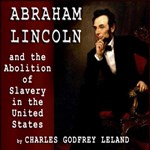- Popular Genres
-

The most popular500
-

Children400
-

Fiction750
-

Fantasy350
-

Horror/Ghost stories700
- Learn English
-

Dictionary 180,000
- Children's Fiction
-

Fiction364
-

Action & Adventure315
-

Animals & Nature275
-

Myths, Legends & Fairy Tales222
-

Family117
-

General102
-

Historical43
-

Poetry48
-

Religion37
-

School33
-

Short works52
- Children's Non-Fiction
-

Non-fiction76
-

Reference5
-

Religion19
-

Science21
-

History14
-

Biography23
- Fiction
-

General694
-

Action & Adventure603
-

Classics (Greek & Antiquity)94
-

Crime & Mystery195
-

Detective322
-

Culture & Heritage127
-

Dramatic Readings151
-

Epistolary Fiction47
-

Erotica12
-

Travel Fiction42
-

Family Life123
-

Biographies & Memoirs73
-

Historical Fiction433
-

Humorous Fiction387
-

Literary227
-

Nature & Animal63
-

Nautical & Marine97
-

Religious Fiction109
-

Romance477
-

Sagas16
-

Satire127
-

Sports Fiction9
-

Suspense & Espionage79
-

War & Military Fiction89
-

Westerns98
- Fantastic Fiction
-

Fantastic Fiction103
-

Myths, Legends & Fairy Tales178
-

Horror & Supernatural Fiction150
-

Gothic Fiction25
-

Science Fiction490
-

Fantasy Fiction83
- Short Stories - Fiction
-

Short Stories260
-

Anthologies37
-

Single Author Collections142
- Fiction by year
-

Published before 180020
-

Published 1800-1900207
-

Published 1900 onward207
- Non-Fiction
-

Non-Fiction427
-

War & Military170
-

Animals62
-

Art, Design & Architecture43
-

Biography & Autobiography360
-

Memoirs187
-

Business & Economics31
-

Crafts & Hobbies15
-

Education & Mathematics28
-

Essays & Short Works177
-

Family & Relationships27
-

Health & Fitness20
-

House & Home20
-

Cooking64
-

Gardening10
-

Humor61
-

Law24
-

Medical32
-

Music33
-

Nature149
-

Performing Arts15
-

Political Science118
-

Psychology62
-

Reference16
-

Self-Help & Advice66
-

Sports & Recreation15
-

Technology & Engineering37
-

Travel & Geography177
-

True Crime49
-

Writing & Language24
- Science - Non Fiction
-

Science67
-

Astronomy, Physics & Mechanics25
-

Chemistry8
-

Earth Sciences22
-

Life Sciences40
- Philosophy - Non Fiction
-

Philosophy92
-

Ancient & Medieval30
-

Early Modern32
-

Modern & Contemporary43
-

Atheism & Agnosticism19
- History - Non Fiction
-

History256
-

Antiquity37
-

Middle Ages/Middle History36
-

Early Modern82
-

Modern (19th C)127
-

Modern (20th C)49
- Religion - Non Fiction
-

Religion63
-

Christianity - Commentary19
-

Christianity - Biographies26
-

Christianity - Other86
-

Other religions29
- Bibles
-

Bibles69
-

King James Version63
- Literary Collections - Non Fiction
-

Literary Collections34
-

Essays / Short non-fiction20
-

Letters27
- Abraham Lincoln and the Abolition of Slavery in the United States
-
 Download the book
Download the book
The book is a biography of Abraham Lincoln with emphasis on how his personality and beliefs impacted the history of the American Emancipation and its causes. The book is very well written, easy to read and includes incredible historical information being written by a man who was there during the civil war. He even fought in the war and was able to add his insight into the happenings from his own perspective. This book would add knowledge to anyone who really wants to know the truth about Abraham Lincoln and the Civil War.
- Chapters
- Chapter 1: Birth of Abraham Lincoln—The Lincoln Family—Abraham’s first Schooling—Death of Mrs. Lincoln, and the new “Mother”—Lincoln’s Boyhood and Youth—Self-Education—Great Physical Strength—First Literary Efforts—Journey to New Orleans—Encouraging Inci
- Chapter II: Lincoln’s Appearance—His First Public Speech—Again at New Orleans—Mechanical Genius—Clerk in a Country Store—Elected Captain—The Black Hawk War—Is a successful Candidate for the Legislature—Becomes a Storekeeper, Land Surveyor, and Postmaster
- Chapter III: Lincoln settles at Springfield as a Lawyer—Candidate for the Office of Presidential Elector—A Love Affair—Marries Miss Todd—Religious Views—Exerts himself for Henry Clay—Elected to Congress in 1846—Speeches in Congress—Out of Political Emplo
- Chapter IV: Rise of the Southern Party—Formation of the Abolition and the Free Soil Parties—Judge Douglas and the Kansas-Nebraska Bill—Douglas defeated by Lincoln—Lincoln resigns as Candidate for Congress—Lincoln’s Letter on Slavery—The Bloomington Speec
- Chapter V: Causes of Lincoln’s Nomination to the Presidency—His Lectures in New York, &c.—The First Nomination and the Fence Rails—The Nomination at Chicago—Elected President—Office-seekers and Appointments—Lincoln’s Impartiality—The South determined to
- Chapter VI: A Suspected Conspiracy—Lincoln’s Departure for Washington—His Speeches at Springfield and on the road to the National Capital—Breaking out of the Rebellion—Treachery of President Buchanan—Treason in the Cabinet—Jefferson Davis’s Message—Threa
- Chapter VII: Mr. Seward refuses to meet the Rebel Commissioners—Lincoln’s Forbearance—Fort Sumter—Call for 75,000 Troops—Troubles in Maryland—Administrative Prudence—Judge Douglas—Increase of the Army—Winthrop and Ellsworth—Bull Run—General M‘Clellan,
- Chapter VIII: elations with Europe—Foreign Views of the War—The Slaves—Proclamation of Emancipation—Arrest of Rebel Commissioners—Black Troops,
- Chapter IX: Eighteen Hundred and Sixty-two—The Plan of the War, and Strength of the Armies—General M‘Clellan—The General Movement, January 27th, 1862—The brilliant Western Campaign—Removal of M‘Clellan—The Monitor—Battle of Fredericksburg—Vallandigham an
- Chapter X: Eighteen Hundred and Sixty-three—A Popular Prophecy—General Burnside relieved and General Hooker appointed—Battle of Chancellorsville—The Rebels invade Pennsylvania—Battle of Gettysburg—Lincoln’s Speech at Gettysburg—Grant takes Vicksburg—Port
- Chapter XI: Proclamation of Amnesty—Lincoln’s Benevolence—His Self-reliance—Progress of the Campaign—The Summer of 1864—Lincoln’s Speech at Philadelphia—Suffering in the South—Raids—Sherman’s March—Grant’s Position—Battle of the Wilderness—Siege of Peter
- Chapter XII: The President’s Reception of Negroes—The South opens Negotiations for Peace—Proposals—Lincoln’s Second Inauguration—The Last Battle—Davis Captured—End of the War—Death of Lincoln—Public Mourning,
- Chapter XIII: President Lincoln’s Characteristics—His Love of Humour—His Stories—Pithy Sayings—Repartees—His Dignity,.
